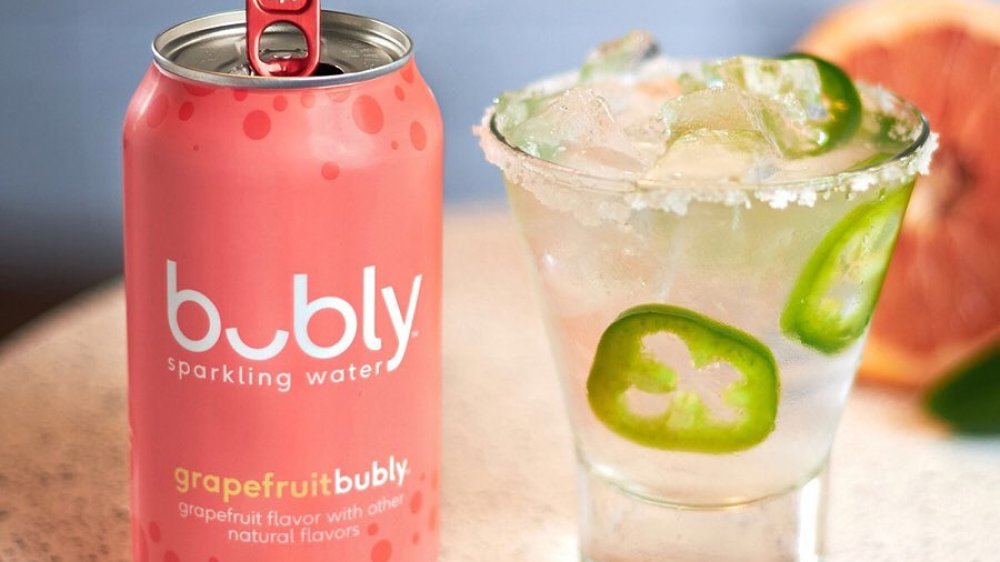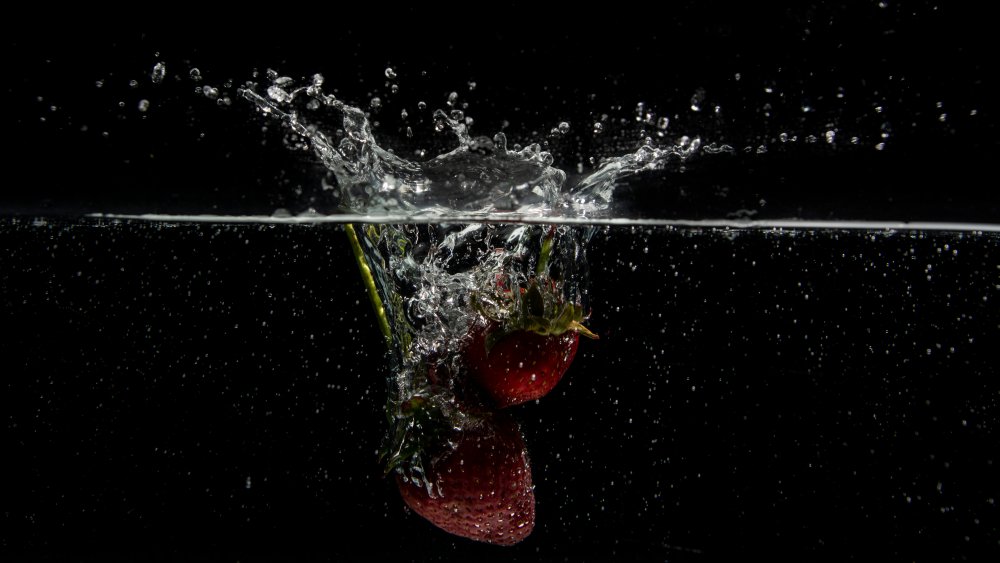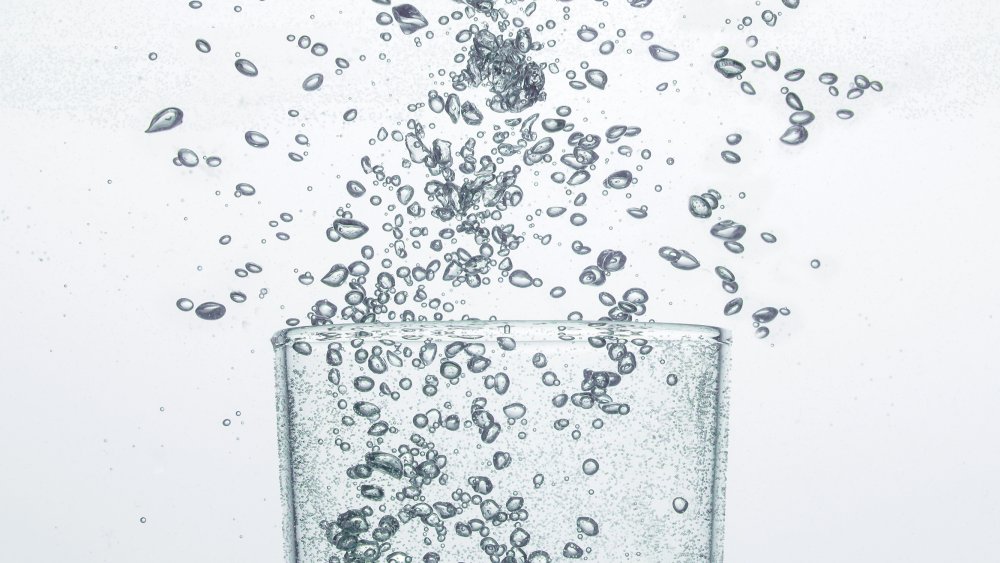This Is What's Really In Bubly Sparkling Water
In recent decades, the word "natural" has been bandied about on everything from potato chips to toothpaste — but, like most marketing-speak, means very little in concrete terms. Take sparkling seltzers: These healthier-seeming soda substitutions have skyrocketed in popularity over the last several years, with The Washington Post reporting in late 2019 that sales had reached nearly $2.5 billion in the previous year. Looking to tap into some of those profits, PepsiCo launched its own flavored sparkling water, Bubly, in February 2018, to compete with booming brands like LaCroix. And, like competing varieties, Bubly's list of two ingredients seems innocuous: carbonated water and natural flavor. The only problem? No one knows what those "natural flavors" truly entail.
The slippery definition of 'natural flavors'
The battle to find out what exactly "natural flavors" means is ongoing. For example, in 2018, Vox investigated a class-action lawsuit against the makers of LaCroix, due to some disagreements on whether, in fact, the product was natural, as claimed. As Cooking Light explains, the FDA defines "natural flavor" as "the essential oil, oleoresin, essence, or extractive, protein hydrolysate, distillate, or any product of roasting, heating, or enzymolysis, which contains the flavoring constituents derived from a spice, fruit or fruit juice, vegetable or vegetable juice, edible yeast, herb, bark, bud, root, leaf or similar plant material, meat, seafood, poultry, eggs, dairy products, or fermentation products thereof, whose significant function in food is flavoring rather than nutritional." Not very helpful, right?
'Natural flavors' remain a mystery
To complicate matters further, USA Today notes that companies using "natural flavor" in their ingredient lists don't need to explicitly state the origins of those flavors, while a single flavor can incorporate up to 100 different sources — and, perhaps most surprising, the FDA lumps in 3,000-plus "chemical food additives" under the clearly meaningless term "natural flavors." On the positive side, these so-called natural flavors (probably) won't prove harmful, as Cooking Light clarifies that any ingredients used by manufacturers must pass expert and scientific review to fall under the FDA's category of "generally recognized as safe," or GRAS. But as long as manufacturers are not required to reveal their sources, those fruit-like essences in sparkling seltzers (and a host of other consumables that contain "natural flavor") will remain a mystery.


